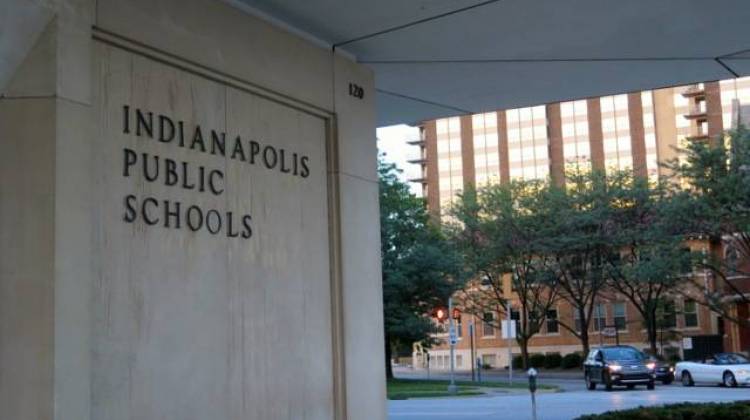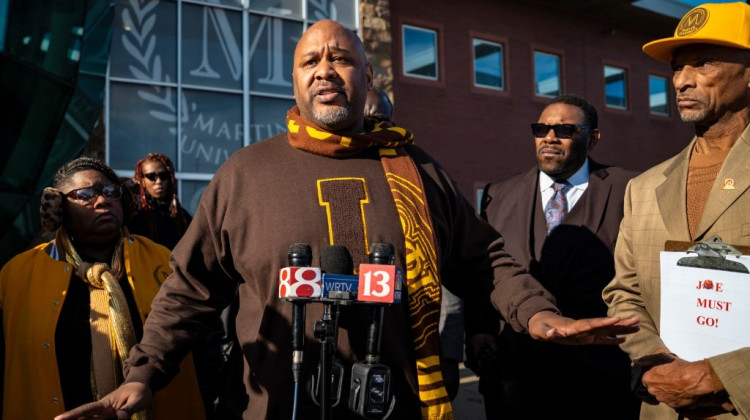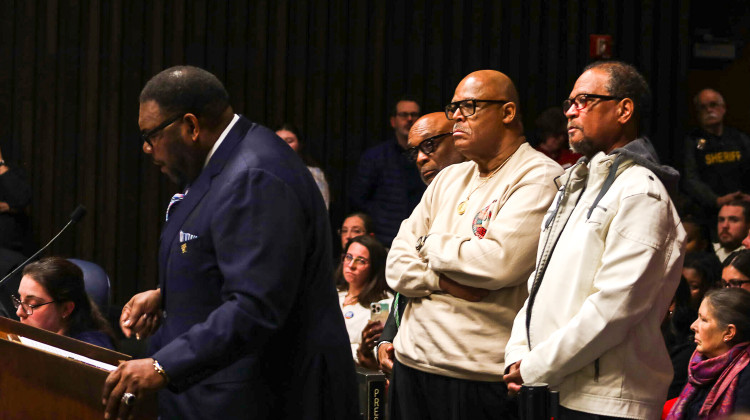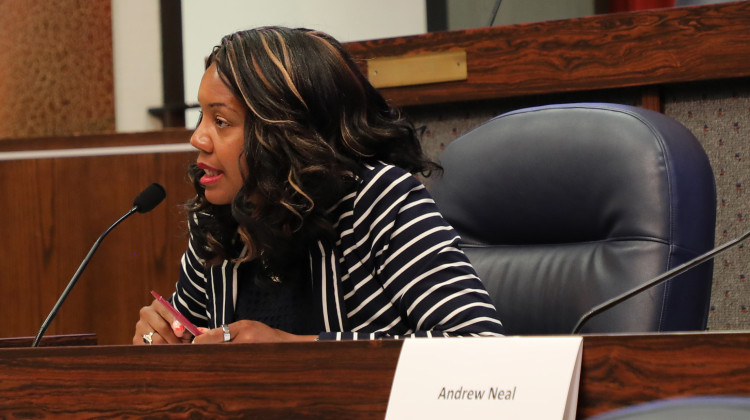
Superintendent Aleesia Johnson said the schools will offer opportunities for students that are similar to a learning hub model to provide some in-person assistance or tutoring if additional support is needed.
WFYI NewsThe Indianapolis Public Schools Board of Commissioners approved a new partnership with two local charter school operators to provide online learning options next fall, during their Thursday school board meeting. Paramount Schools of Excellence and Phalen Leadership Academies will provide fully virtual learning options to any student, as well as those enrolled through IPS.
The agreement passed 5-1 with commissioner Susan Collins opposed. Commissioner Taria Slack was absent for the vote.
The five-year plan could cost the cash-strapped district up to $1.5 million in the first year.
This agreement makes IPS the sixth Marion County school district to provide a virtual learning option next year, following announcements from the Pike, Lawrence, Speedway, Warren and Wayne schools.
However, Perry Township said they will not provide an online learning option.
Partnering With Charter School Operators
So far, IPS believes they are the only Marion County school district to partner with innovation schools to provide online learning next year. Innovation schools are part of the IPS district and operated by charter organizations and nonprofit school managers. Teachers at these schools are not part of the district’s collective bargaining agreement.
The online programs will allow students to learn in real time with a teacher who solely provides online instruction, instead of teachers who are juggling both in-person and online students. Class sizes for this program are anticipated to be around 25-30 students.
Superintendent Aleesia Johnson said it’s important to provide the option to families.
“We have a lot of work to do and a lot of priorities around our academic work,” Johnson said. “And so if the option is to partner with someone who has done the work to launch a program, or build it from scratch ourselves—taking away some of the time and attention and focus on the work we know we want to do in our school buildings—I’d much prefer to partner.”
According to board documents, the Phalen Leadership Academies Virtual Learning Academy started last year. The program reported 100% on-time graduation rate for 2021 high school seniors, and included a college and career pathway.
The 2021-22 school year will be the first for Paramount Online Academy. But the district said Paramount's “2020 virtual learner outcomes were on-par with in-person students in [the] first year of offering full-time virtual instruction.”
Even though the agreement passed, some school board members were hesitant about the partnership during the board meetings this week due to: the lack of long-term student performance data in the school’s virtual learning environment; and low performance rates associated with other virtual learning programs in the state.
Asynchronous Learning Will Not Be Provided
The virtual innovation schools will not be required to follow the IPS curriculum. Instead, they would use their modified online curriculum, which IPS said is comparable to their in-person instruction.
Those who do not excel with daily live instruction may have a harder time without an asynchronous learning option. But Johnson said the new program would be more comparable to in-person learning.
“Similarly to an in person classroom, there are built in opportunities for students to be working on their work either independently or with a partner,” Johnson said earlier in the week. “And so I don't see it as an ‘either’, ‘or.’ I think it's a ‘both,’ ‘and’ -- where there's opportunities to be engaging with an instructor, to get the lesson introduced [and] to ask questions and get that feedback. Along with those opportunities to be navigating that work on your own independently in the same way that we have in place in an in-person environment.”
Johnson said the schools will offer opportunities for students that are similar to a learning hub model to provide some in-person assistance or tutoring if additional support is needed.
Costs for IPS, Innovation Schools
Virtual schools are funded at 85% of the per-student funding level that brick-and-mortar schools receive. Paramount Schools of Excellence and Phalen Leadership Academies will each receive an additional $500 per student from IPS. The payment will be required for any student who attends either school and lives inside the IPS boundary.
The per student funds will help support costs endured by the innovation schools, district officials said. This includes installing sound insulation in classrooms to reduce noise for teachers who will be providing virtual instruction from the school building.
Additionally, the schools may also hire more staff to meet the demand of students learning online. But it is unknown just how many students plan to continue remote learning when classes resume in August. Of the roughly 5,000 IPS students currently learning online, only 653 families completed a survey on virtual learning. The district said they also held student and parent focus groups on their need for virtual learning next year.
Although the district only expects a few hundred students to choose the online learning option, the need for virtual learning could be greater.
According to the survey results, almost 70% of respondents had a favorable or highly favorable experience with IPS virtual learning. 60% of respondents said they would like a full-time virtual option next year.
As part of the innovation agreement between IPS and the charter operators, the district will pay $500 for each student that enrolls in one of the remote programs. This could lead to a hefty price tag as the district faces an $18 million shortfall.
Paramount Online Academy has 558 available seats for students in grades K-8. Phalen Virtual Leadership Academy has 2,000 seats for students in grades K-8 and 500 seats for grades 9-12. That comes to a total of 3,058 seats for virtual learning.
If all of those seats are filled, that could cost the district $1.5 million.
During the Tuesday school board meeting, the district did not provide information on how much money the partnership would save the district. A spokesperson later said they will be able to announce within the coming weeks whether this money is coming from the federal stimulus funding or other areas of the state-funded budget.
“This is something new that we're all sort of taking on within a COVID context,” Johnson said earlier in the week. “So we know we’ll need to continue to be in conversation -- what's working, what's not working -- and ensure that communication channel is open, particularly in this first year.”
District leaders hope the innovation agreements will lead to a long-term virtual learning partnership. Next spring, IPS and the innovation schools will be able to reassess the partnership as needed, and reevaluate the $500 per pupil cost.
Contact WFYI education reporter Elizabeth Gabriel at egabriel@wfyi.org. Follow on Twitter: @_elizabethgabs.
 DONATE
DONATE







 Support WFYI. We can't do it without you.
Support WFYI. We can't do it without you.